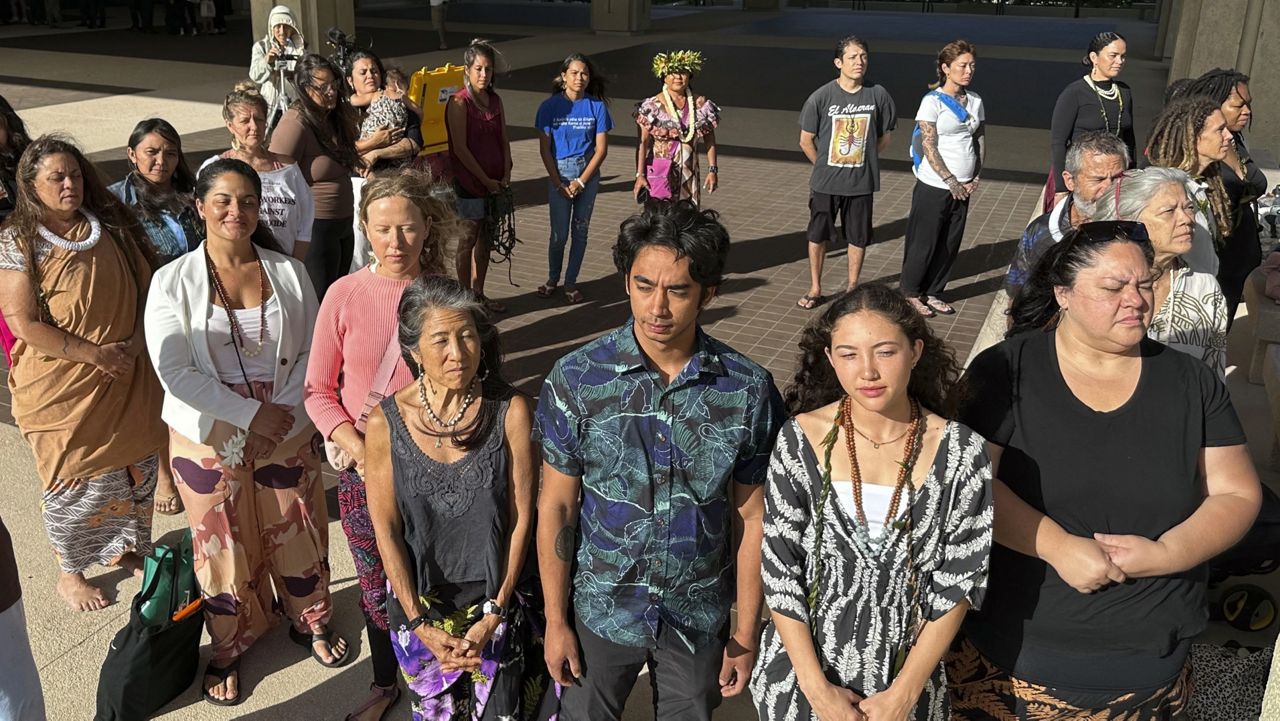HONOLULU — First Circuit Court Judge Shirley Kawamura temporarily blocked the state from enforcing the so-called midwife licensure law, which requires that midwives and others who provide assessment, monitoring and care during pregnancy, labor, childbirth and postpartum recovery to be licensed by the state.
Act 32, codified as Hawaii Revised Statutes Chapter 457J, was enacted in 2019 but did not take effect until July 1, 2023. While the law does not impact an individual’s right to choose where they wish to give birth, who may be present during the birth and or whom they elect to serve as their birth care provider, it does set forth requirements for licensure, specifies powers and limitations, and establishes penalties, including fines and imprisonment, for those who provide midwife-related services without a license.
The Center for Reproductive Rights, the Native Hawaiian Legal Corporation and the law firm Perkins Coie sued the state on behalf of nine plaintiffs — six midwives and student midwives and three women who want to receive care from traditional midwives — seeking to have the law overturned on constitutional grounds.
As the complaint states, “the Midwifery Restriction Law is undermining reproductive autonomy, health and the continuation of cultural practices at a time of crisis for maternal health equity. It cuts pregnant people off from the care they need and desire, and its expansive reach ensnares their trusted midwives, doulas, lactation consultants, counselors, childbirth educators, cultural practitioners, extended family members and friends. The law violates the rights of pregnant people, midwives, student midwives and others supporting pregnant people guaranteed by the Hawaii State Constitution.”
In her ruling on Monday, Kawamura wrote, “If plaintiffs, especially student midwives, and other pale keiki pale keiki [midwife who uses Native Hawaiian practices] and hanau (birth) practitioners, educators and apprentices are not able to practice, teach and learn, they will lose the opportunity to gain knowledge from the kupuna to pass on to future generations.”
Midwifery was first regulated in Hawaii in 1931, first via registration, then certification, then licensure. However, regulation was repealed in 1998 when nurse-midwives were transferred to the purview of the Board of Nursing.
Act 32 acknowledged that some mothers and families seek alternatives to hospital births and may find value in community or home-birth services. It also noted that midwife services have “evolved” since 1998 and now include a variety of practices that vary in definitions, training and competency standards.
The measure provided for a three-year exemption period to allow Native Hawaiian cultural practitioners to obtain licensure or for alternative pathways to licensure to be developed.
Opponents of the law have noted that licensure requires practitioners to successfully complete a program accredited by the Midwifery Education Accreditation Council or the North American Registry of Midwives, neither of which includes Native Hawaiian cultural practices or offers classes in the state. The exemption expired last year, leaving unlicensed practitioners unable to legally continue their services for fear of fines or imprisonment.
Kawamura’s temporary injunction pauses enforcement of the law until a council can be convened to recognize Hawaiian birthing practitioners.
“This ruling means that traditional Native Hawaiian midwives can once again care for families, including those who choose home births, who can’t travel long distances, or who don’t feel safe or seen in other medical environments,” said Makalani Franco-Francis, a midwife trainee and one of the plaintiffs. “We are now free to use our own community wisdom to care for one another without fear of prosecution.”
The ruling does not cover unlicensed midwives or attendants who engage in something other than Native Hawaiian birthing practices.
A trial has yet to be scheduled to address the constitutional merits of the case.
Hawaii Administrative Rules for HRS 457J have not yet been established, but the Department of Commerce and Consumer Affairs has released a proposed draft for public consideration. A public hearing has been scheduled for July 29, 9 a.m. to 1 p.m. at the King Kalakaua Conference Room, 1st Floor, King Kalakaua Building, DCCA, 335 Merchant St. Honolulu, HI 96813. The hearing may also be joined virtually.
Michael Tsai covers local and state politics for Spectrum News Hawaii. He can be reached at michael.tsai@charter.com.



